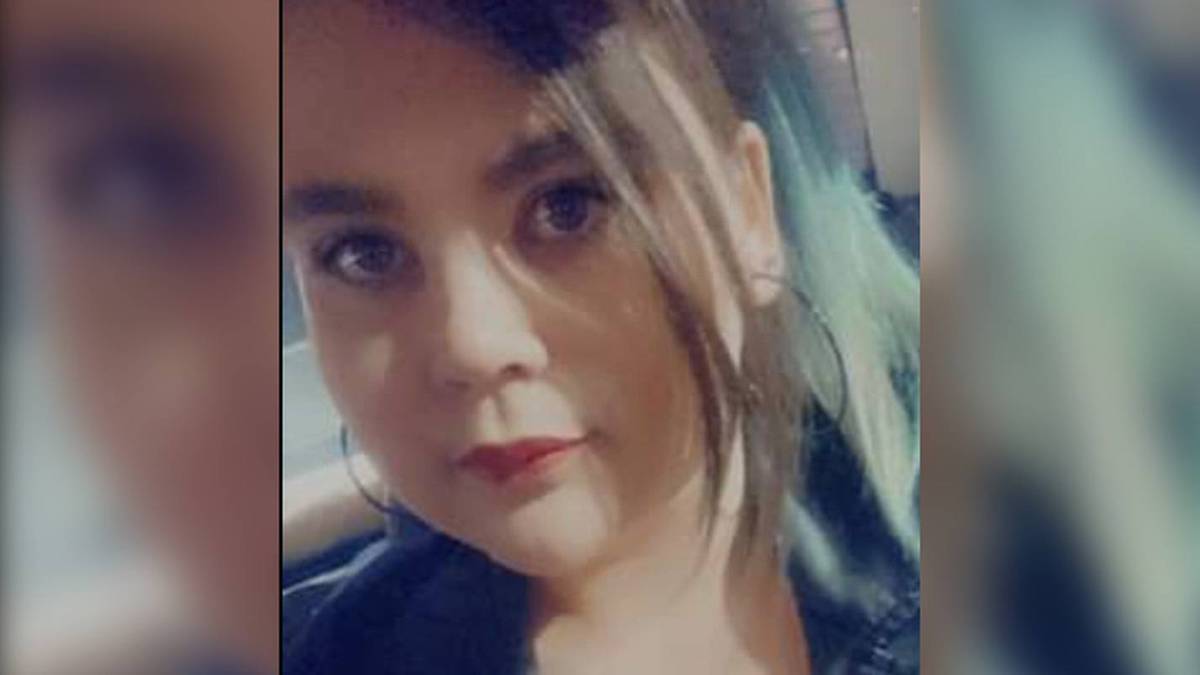A beachgoer has described the traumatic scenes at Bowentown Beach as surf lifeguards tried valiantly to save a woman who died from wounds suffered in a shark attack.
Police last night named the victim as Kaelah Marlow, 19, from Hamilton.
Marlow moved to New Zealand five years ago with her parents, Robert and Michelle, and 17-year-old sister Georgia, her aunt Kylie French told the West Australian.
“I’m just in shock, everyone is just in shock. We can’t get over there, Mum can’t get over there,” she said.
“You hear about shark attacks, but never in a million years you think it’ll be someone you know. She was obviously out with her friends having a great time. She was a lovely girl, a fun girl, always bubbly, into anything.”
Marlow had been living in Cambridge and working on a farm after previously studying a trade apprenticeship, French said.
The family had lived in Perth before moving to Tom Price for Marlow’s father’s mining work.
He and Marlow’s mother and sister moved to Dunedin this past Christmas and travelled yesterday morning to identify Marlow.
The attack happened just after 5pm on Thursday and emergency services soon afterwards flooded the area, which is near Waihī.
It’s understood Marlow was pulled from the water alive and paramedics desperately administered CPR on the beach but could not save her life.
Among those at the beach yesterday was Matt Lawry, who recalled how he looked on as they worked to save Marlow. He told the Weekend Herald a man was being comforted by an emergency services staffer nearby.
“Watching them try to save the young woman without success and seeing the man’s white face was a very traumatic, harrowing experience,” Lawry said.
After CPR efforts stopped, a man walked about 50m to 70m into the sea and began splashing water over himself, Lawry said.
“I can’t stop thinking about the extreme grief I saw on his face as he left the beach.”
Lawry, who is from Kaipaki, in Ohaupo, was holidaying at the Bowentown Beach Holiday Park and said there had been several shark sightings close to shore in the past week.
Tadhg Stopford also saw the man walk into the ocean and says he stood there for several minutes.
“His entry into the sea was a challenge, I guess, to the shark who had stolen the life of his loved one.
“With my children around me, I felt his loss.”
The last fatal shark attack in Bay of Plenty was at Te Kaha in 1976. John Leith, 27, died after he was attacked while spearfishing from a dinghy.
Iwi from Otawhiwhi Marae blessed the area with a karakia and placed a rāhui, banning the collection of shellfish, all fishing, and swimming at the beach until next Friday.
Trails of people visited the beach to pay their respects to Marlow yesterday, and several placed floral tributes.
A post-mortem examination was being carried out yesterday and police hoped the results would paint a clearer picture about what happened.
However, the coroner would ultimately determine the cause of Marlow’s death, Eastern Waikato Area Commander Inspector Dean Anderson said.
“We appreciate her death was extremely traumatic for those who were at Waihī Beach yesterday and we are offering Victim Support services to anyone who requires it,” Anderson said.
The beach initially opened yesterday morning, after local councils signed off on the decision not to close it to the public.
However, iwi stepped in and put in the rāhui, which spans from the north end of Waihī Beach down to Bowentown Heads and to Ongare, Tuapiro and Tanner Pt.
Surf Lifesaving New Zealand’s eastern region lifesaving manager, Chaz Gibbons-Campbell, said swimming would be allowed at certain areas of the beach.
Local kaumātua, surf club officials, Bay of Plenty harbourmaster manager Jon Jon Peters, and Surf Lifesaving NZ and Western Bay of Plenty District Council representatives made the decision, Gibbons-Campbell said.
Signs would inform the public about where they could swim safely and he asked people to continue to respect the rāhui still in force at the Bowentown end of the beach.
Māori warden and Otawhiwhi Marae Trust spokesman Shaan Kingi said the week-long rāhui was appropriate because there was a lot of blood on the beach and in the water.
The area where the woman was attacked was “very tapu” and extra time was needed to allow the blood to be cleared.
More than 15 emergency service responders attended the attack and gathered for karakia with kaumātua from the marae afterwards, Kingi said.
Waihī Māori warden Tapp Cooper said it was “quite shocking” to learn of the fatal shark attack. “About 1.30pm I was down here with my grandchildren having a nice little swim.
“It was a bit overcast, and a bit rough, but it was hot and there were others swimming here as well.”
The sentiments were shared by local Graeme Rackham, who said the death made you “reflect who you are”.
Hamilton man Kelvin Whiting, his wife Karen and his two children were among those who left bunches of flowers on the beach.
“It’s so sad and tragic. My heart goes out to the young lady’s family.
“I still can’t believe it. We had a bach for 32 years and what has happened is so close to home.
“It’s just terribly sad.”
Shark scientist Riley Elliott said it was hard to speculate what species of shark attacked Marlow without all the facts.
However there had been evidence of juvenile and immature great whites in the area as of last summer.
Bronze whalers were more common than great whites in the area but they hadn’t attacked a human in a very long time, Elliott said.
“It’s very uncommon to have shark attacks in New Zealand — in the world in general, especially fatal ones.
“Shark attacks are incredibly rare … If you see [a shark], remain calm, alert people around you, and calmly vacate the water.”
Source: Read Full Article

/cloudfront-ap-southeast-2.images.arcpublishing.com/nzme/RE37U5UFZQG4EX3CGTFGQ7L5WA.jpg)
/cloudfront-ap-southeast-2.images.arcpublishing.com/nzme/FLKIVFPQYG6Q3AR24RJ7F2QZEA.jpg)
/cloudfront-ap-southeast-2.images.arcpublishing.com/nzme/NXG3CR2J2RGG4ADJDTVQ66SJAE.jpg)
/cloudfront-ap-southeast-2.images.arcpublishing.com/nzme/UVKOQMRO5ENNDHNQKOE247JMNM.jpg)
/cloudfront-ap-southeast-2.images.arcpublishing.com/nzme/ARLPO4ERPBSAA7EBOSGZKHNDBA.jpg)
/cloudfront-ap-southeast-2.images.arcpublishing.com/nzme/UBIUAZDJNFMQN33UR53Z3FEWMU.jpg)




